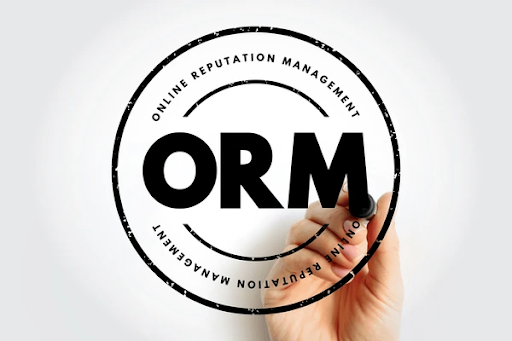A business’s online reputation is crucial to its success, with consumers increasingly relying on online reviews and social media to guide their purchasing decisions. Managing your digital presence effectively ensures that your brand is seen positively. This article explores ORM’s importance, its negative reputation impact, and how digital marketing strategies can enhance a brand’s image.
What is Online Reputation Management?
Online Reputation Management (ORM) is the process of monitoring, influencing, and maintaining a brand’s public perception across various digital platforms. It involves actively responding to customer feedback, managing online reviews, and ensuring transparency in communication. ORM is a key component of digital marketing that helps businesses build trust, improve customer experience, and maintain a positive brand image.
Why is ORM Important?
ORM is essential because it shapes how a brand is perceived online, directly impacting customer loyalty and sales. A strong reputation fosters trust, attracts new customers, and retains existing ones, while a negative reputation can drive customers away. Managing online reviews and addressing customer concerns promptly is critical in protecting and improving a business’s public image.
The Consequences of a Negative Online Reputation
A bad online reputation can lead to significant consequences:
- Loss of Trust and Credibility: Negative reviews or damaging content can erode customer trust, making it harder to attract and retain new customers.
- Decreased Sales and Revenue: Studies show that 70% of consumers trust online reviews as much as personal recommendations
- Attracting New Customers: Poor online sentiment makes building a loyal customer base challenging, and a negative review can decrease sales by 22%.
- Difficulty in Attracting New Customers: Poor online sentiment makes it challenging to build a loyal customer base and can tarnish the brand’s image.
Managing negative feedback quickly and efficiently is essential to minimizing the long-term damage to your business.
How Digital Marketing Can Help with ORM
Digital marketing plays an integral role in ORM by providing businesses with the tools and strategies needed to enhance their reputation. Effective digital marketing tactics such as content creation, SEO, and social media management allow brands to control the narrative and improve public perception.
Building a solid online presence is the foundation of ORM. By optimizing a website for search engines, engaging on social media, and creating valuable content, businesses can ensure their brand is visible and trusted by their target audience. Regular engagement on platforms like Facebook and Instagram helps companies to connect with their audience, address concerns, and promote positive content.
Monitoring and Responding to Online Reviews
Regularly monitoring reviews across platforms like Google, Yelp, and TripAdvisor is crucial for maintaining a positive reputation. Addressing positive and negative feedback shows customers that their opinions matter, fostering trust and loyalty. Responding to negative reviews empathetically and offering solutions can help turn dissatisfied customers into advocates.
Creating Positive Content
Creating and sharing positive content is vital for shaping public perception. High-quality blogs, videos, and social media posts help establish a brand’s authority and connect with customers on a deeper level. Consistently publishing engaging content builds trust and strengthens customer loyalty.
Social Media’s Role in ORM
Social media is a powerful tool for reputation management. Businesses can control their brand narrative by actively maintaining a positive presence and responding to customer feedback in real time. Platforms like Twitter, Facebook, and Instagram enable direct customer interaction, helping companies address concerns and build trust.
Utilizing Reputation Management Tools
Several tools and strategies can assist in ORM, including:
- SEO: By optimizing content to rank higher in search results, businesses can ensure that positive content is more visible than negative reviews.
- Review Management Software: Tools like Brandwatch help businesses track mentions, manage reviews, and analyze customer sentiment.
- Influencer Marketing: Collaborating with influencers can enhance a brand’s reputation by leveraging their credibility and audience reach.
These tools help businesses monitor their online presence, engage with customers, and build a positive brand image.
Conducting an Online Reputation Audit
The first step in implementing ORM is conducting an online reputation audit. This process involves evaluating the current online sentiment surrounding your brand and identifying areas for improvement. Tools like Google Alerts and social listening platforms can help track brand mentions and customer sentiment across the web.
Developing a Digital Marketing Strategy for ORM
A comprehensive digital marketing strategy is essential for managing your online reputation. This strategy should include content creation, social media engagement, and review management. By aligning marketing efforts with reputation management goals, businesses can improve brand perception and customer satisfaction.
Conclusion
Effective Online Reputation Management is crucial for a business’s success. Businesses can build and maintain a positive reputation by employing digital marketing strategies, monitoring customer feedback, and creating positive content. This proactive approach helps attract new customers, retain existing ones, and drive business growth.






